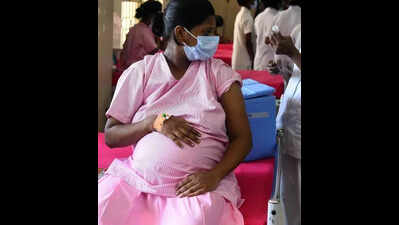Vijayawada: Andhra Pradesh fared better in improving its maternal mortality rate (MMR), reducing it to 30 in 2021–23 from 47 in 2019–21. The MMR estimate for India during 2021–23 is 88, according to the Sample Registration System’s special bulletin on MMR in India 2021-23. According to the data, Andhra Pradesh’s MMR is the best alongside Kerala in the country. Andhra Pradesh and Kerala are followed by Tamil Nadu and Maharashtra with MMRs of 35 and 36 per one lakh live births, respectively. Odisha has the worst MMR with the highest 153 maternal deaths per one lakh live population. Meanwhile, the average MMR for the southern states is 42, with the MMR slightly higher in Karnataka and Telangana at 68 and 59, respectively.Further, the maternal mortality rate, which is calculated as maternal deaths to women aged 15-49 per lakh of women in that age group, is two in Andhra Pradesh, while the lifetime risk is 0.05%, as reported under the latest SRS.Explaining the factors that led to Andhra Pradesh faring better in the MMR, Andhra Pradesh maternal health AD Dr Anil Kumar said: “Implementation of Maternal Death Surveillance and Response (MDSR) by healthcare personnel on a dynamic basis at the grassroots level and optimum utilisation of National Health Mission (NHM) funds not only at teaching hospitals but also territorial hospital areas has helped Andhra Pradesh to fare well and bring down the MMR.”The maternal health nodal officer said: “Under MDSR, the health department has not just reviewed the maternal deaths but also laid its focus on identifying and notifying causes and actions to understand the causes and came up with actionables to prevent maternal deaths.”He also credited NHM interventions under Maternal Health such as Pradhan Mantri Surakshit Matritva Abhiyan (PMSMA), Pradhan Mantri Matru Vandana Yojana (PMMVY), Labour Room Quality Improvement Initiative (LaQshya), POSHAN Abhiyaan, and Anemia Mukt Bharat (AMB) for the reduction of maternal deaths.“‘Delivery Points’ across the state are strengthened in terms of infrastructure, equipment, and trained manpower for the provision of comprehensive RMNCAH+N services, as per IPHS standards. Further, the health department has established the Maternal and Child Health (MCH) Wings at high caseload facilities to improve the quality of care provided to mothers and children along with the operationalisation of Obstetric Intensive Care Unit/High Dependency Unit (ICU/HDU) at high caseload tertiary care facilities across the country to handle complicated pregnancies in the state,” the maternal health nodal officer informed.“A similar health survey should be conducted for the male population to identify the number of deaths of males in NCDs. The majority of people succumbing due to non-communicable diseases are men, and conducting a dedicated health survey for men’s deaths is key for public health in society,” Dr Anil Kumar opined.








